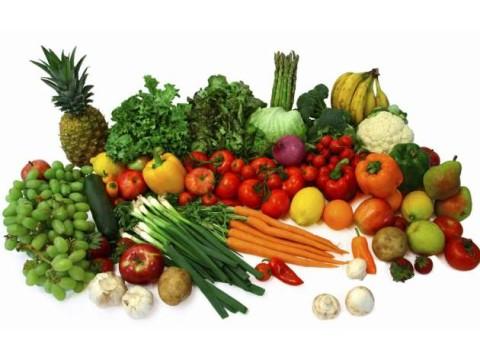Fruits, vegetables, grains, bark, roots, stems, flowers, tea, and wine all contain flavonoids withg a powerful antioxidant potential. Flavonoids are a collection of natural compounds with varying phenolic structures.

Flavonoids are a group of plant compounds that we usually obtain from our diet as part of the vegetables and fruit we eat. These flavonoids are very important for our health because they are natural antioxidants and anti-inflammatories. An excellent source of flavonoids in particular is the bark of pine trees, which is extracted from the pine bark, a highly concentrated mixture of these natural antioxidant and anti-inflammatory flavonoid compounds.
Research has shown that a diet rich in fruits and vegetables has significant protective effects against many diseases including cancer, heart disease, Alzheimer and others. This is a well established fact that has been shown in over one hundred epidemiological studies on diet and health. Here is a study for example on the benefits of eating fruit and vegetables to help prevent heart disease.
A large body of epidemiological, in vitro, and in vivo studies have documented the anti-inflammatory properties of a wide variety of flavonoids in various chronic inflammatory conditions such as autoimmune diseases, cancer, diabetes, cardiovascular disorders, and neurodegenerative diseases. The problem I have with this study is the following statement: “The beneficial biological activities of flavonoids are undoubtedly related to their structural composition and attributes, making them ideal lead candidates for the development of pharmaceuticals.” No doubt to patent an activity or chemical they isolate from a vegetable or fruit. All for profit and not health.
Much of the disease protection from eating lots of fruits and vegetables is due to the plant nutrient compounds known as flavonoids.
There are many different flavonoids and their type and amount differs between the types and varieties of fruits and vegetables. According to the US database for flavonoid content of selected foods, the average amount of flavonoids in 100 g of vegetables is 8.2 mg (based on 59 types of unprocessed/raw vegetables), and 100 g of fruit contain 20.9 mg of these goodies (based on 30 types of commonly available fresh fruit).
One important role that flavonoids play in our diet is their natural function as antioxidants. We live in a highly oxidative environment and many processes in our body produce more oxidants, also known as free radicals. Our bodies own antioxidant defence mechanisms are unfortunately not perfect and, consequently, oxidative damage to the building blocks of our body occurs all the time. Research has shown that oxidative damage contributes to many diseases including cancer, heart disease, Alzheimer, and most chronic diseases, and accumulation of oxidative damage plays an important role in the ageing process. Therefore, it is important to protect ourselves against oxidative damage as best as we can.
Apart from fruits and vegetables that are part of our general diet there are also other sources of flavonoids in nature that we usually do not utilise. One such source is tree bark and, in particular, the bark of pine trees. This explains why tree bark has featured prominently in many traditional folk medicines for hundreds of years.
Pine bark is a highly concentrated source of flavonoids. The unique, high potency combination of flavonoids found in pine bark is extracted from the tree bark with a specialised pure-water extraction method. This method maintains the full activity and integrity of the flavonoid compounds ensuring the high potency.